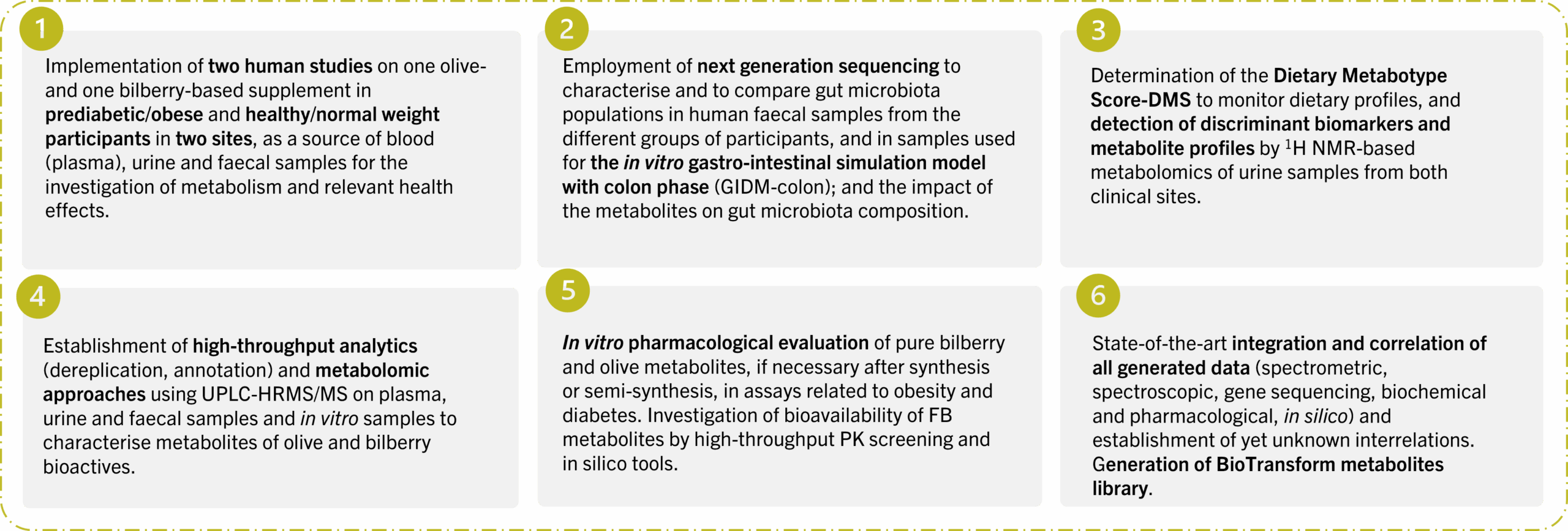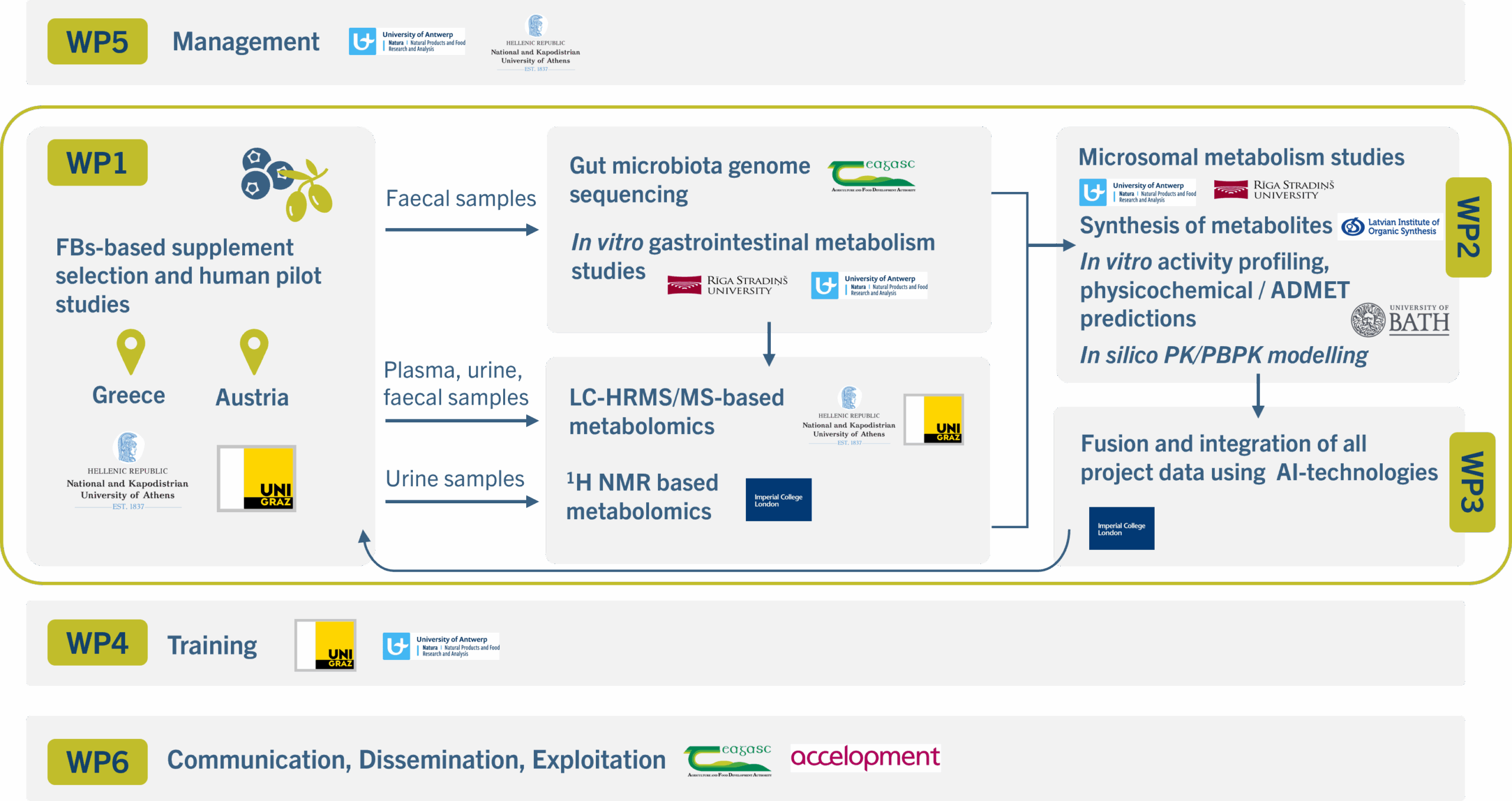Project
Why BioTransform?
Food and dietary patterns are directly associated with human health. The gut microbiome has recently emerged as a crucial factor in health maintenance and disease prevention. Its composition varies widely between individuals and strongly influences metabolic health, while disturbances are linked to common disorders such as obesity and type-2 diabetes. Beyond nutrients, foods contain numerous biologically active constituents – the so-called food bioactives (FB). Their diversity, especially in plant-based foods, is vast, but their identity and concentrations remain largely unknown. Together with nutrients, FB shape gut microbiota structure and function through multiple biotransformation reactions. Importantly, the beneficial effects of FB are often mediated not by the original compounds but by their metabolites formed in the gut. Exploring these metabolic pathways is essential to uncover the pharmacologically active forms circulating in the human body. Yet, current knowledge on the interactions between FB and the gut microbiome is still incomplete, despite their regular intake as part of the diet and through supplements.
Our objectives
Driven by the hypothesis that the compounds responsible for – or contributing to – the diet’s health effects are often the metabolites and not the genuine FB (i.e., olive or bilberry bioactives), BioTransform aims to systematically investigate human metabolism, highlighting microbial conversions in the gut. To achieve this goal, BioTransform puts forward six research objectives.

Research programme
To achieve our research objectives, we have defined three scientific work packages (WPs) as the core of our project
concept. Human pilot studies with olive- and bilberry-based supplements will provide clinical data and biological samples to investigate the impact of food bioactives on metabolic health (WP1). In vitro and in silico studies will explore their gastrointestinal and hepatic metabolism, as well as their pharmacological activity in obesity and diabetes models (WP2). Advanced metabolite profiling and data integration will then identify bioactive metabolites and uncover new links between food bioactives, the gut microbiome and human health (WP3).

